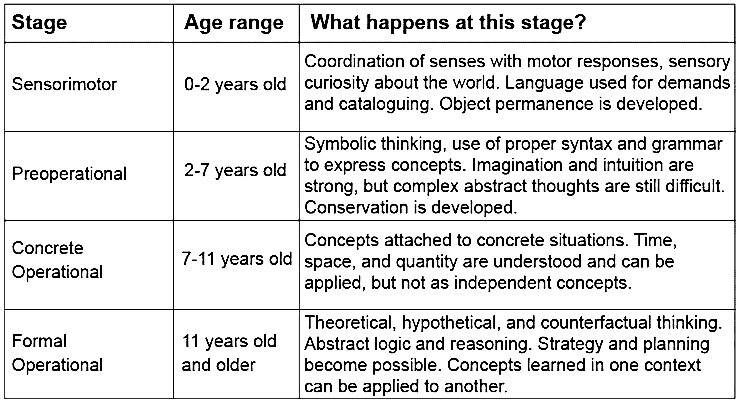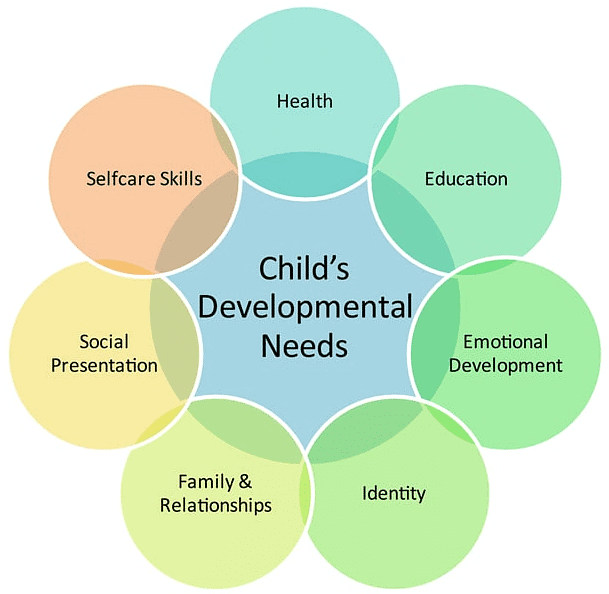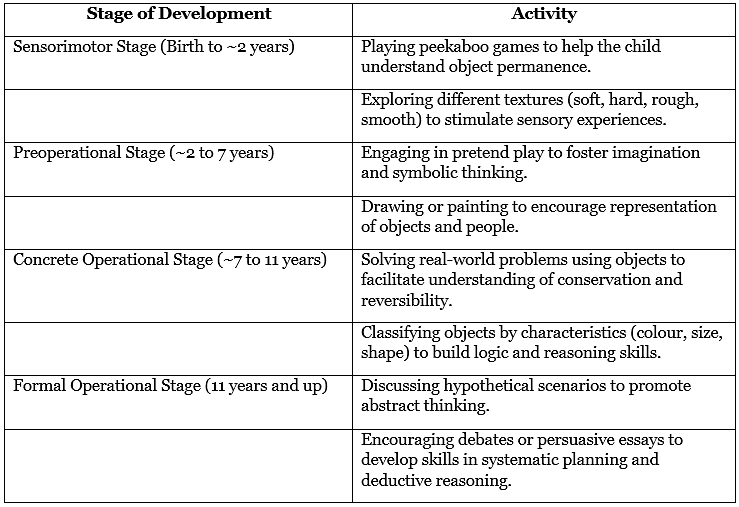Piaget’s Theory of Cognitive Development | Psychology for UPSC Optional (Notes) PDF Download
Introduction
- Jean Piaget, a Swiss psychologist, proposed the Theory of Cognitive Development, which suggests that children's intelligence evolves as they mature. Cognitive development in children involves more than acquiring knowledge; it entails constructing a mental model of the world around them (Miller, 2011). Piaget's work is widely considered foundational in the field of developmental psychology. In this article, we explore the implications of his theory for children's intellectual development in educational settings.
- During the 1920s, Piaget was employed at the Binet Institute, where his task was to translate English intelligence test questions into French. It was through this work that he became intrigued by why children provided incorrect answers to questions requiring logical thinking (Meadows, 2019).
Piaget posited that these erroneous responses revealed fundamental differences between the thinking processes of children and adults. He introduced a new set of assumptions about children's intelligence:
- Children possess distinct modes of thinking and perceive the world differently from adults.
- Children are active participants in constructing their understanding of their surroundings.
- To comprehend children's reasoning effectively, one must adopt their perspective.
Piaget's primary interest was not in measuring children's spelling abilities, counting skills, or problem-solving aptitude to assess their IQ. Instead, he aimed to uncover how fundamental concepts such as time, number, justice, and quantity emerge in their minds (Greenfield, 2019).
- Piaget employed various methods in his research, including observations, clinical interviews with older children capable of engaging in conversations and understanding questions, controlled observations, and naturalistic observation of his own three children. He also developed diary descriptions and charts to document children's development.
- Piaget's theory posits four stages of cognitive development that children progress through, each characterized by unique traits and abilities. The initial stage, known as the sensorimotor stage, occurs from birth to around two years old, during which children understand the world through sensory experiences and motor actions.
- The subsequent stage, called the preoperational stage, spans from approximately two to seven years old and involves children's ability to use symbols to represent objects and events. The third stage, known as the concrete operational stage, takes place from about seven to twelve years old and encompasses children's capacity for logical thinking about concrete objects and events. Finally, the formal operational stage occurs around twelve years old and signifies the child's ability to think abstractly and engage in hypothetical reasoning.
Piaget's Theory of Cognitive Development

Who exactly was Jean Piaget?
Jean Piaget, born in 1896 in Neuchâtel, Switzerland, initially pursued medicine after completing high school but soon shifted his focus to philosophy and sociology. During World War I, he served as an army doctor. After the war, he delved into the study of law before returning to philosophy and sociology. At the age of 30, he gained recognition with the publication of his acclaimed book "Genetic Epistemology," which propelled him to become one of the prominent psychologists of his generation. His influential contributions led to the establishment of the Jean Piaget Society, named in his honor.
Piaget's research spanned diverse fields, including child development, logic, mathematics, linguistics, social sciences, and education.
His notable works include "Logic," "Reasoning and Judgment," and "Constructionism." Jean Piaget's significance lies in his insights into cognitive processes during childhood, aiding educators in identifying what and when to teach. The following sections will explore key concepts underpinning Piagetian theories.
Piaget's influence on developmental psychology stems from his demonstration that learning occurs in stages rather than being acquired all at once. Individuals pursuing a career in child psychology will undoubtedly encounter his influential work. Although his contributions have faced criticism in recent years, the importance of his impact on developmental psychology remains undeniable.
- Piaget was among the pioneering researchers to study children's development and formulated the theory that children progress through stages.
- He investigated how children learn and discovered that their learning occurs through active engagement rather than passive listening or reading.
- He identified that children have unique ways of learning that may deviate from adult rules and conventions.
- He recognized children's innate creativity, imagination, and inclination towards play and exploration.
- He advocated for allowing children to make mistakes without punitive measures, emphasizing the value of learning through trial and error.
Stages of Cognitive Development
According to Jean Piaget, cognitive development occurs through the interplay between innate abilities and environmental influences, and children progress through a series of stages (Wellman, 2011). The sequence of these stages remains consistent across cultures, although the rate of progression may vary among individuals. The following outlines Piaget's stages of intellectual development:
Sensorimotor Stage (Object Permanence)
Birth to 18-24 months
- During the sensorimotor stage, infants utilize their actions and senses to explore and understand their surrounding environment.
- A significant milestone in this stage is the development of object permanence, where children grasp the concept that objects continue to exist even when they are out of sight. This achievement marks a crucial step in cognitive development as it enables children to form mental representations of the world. As they advance through subsequent stages, they will build upon this foundation, acquiring more complex cognitive abilities.
- The sensorimotor stage also encompasses the emergence of various cognitive abilities, such as representational play, deferred imitation, and self-recognition.
- In the early months of this stage, infants live in the present moment and do not possess a stored memory of the world. However, by around 8 months of age, they begin to comprehend object permanence and actively search for objects that are no longer visible.
- Toward the latter part of this stage, infants start to demonstrate a rudimentary symbolic function, using one object to represent another. Language development also begins as children realize they can use words to convey feelings and refer to objects. The child starts to store information about the world, label it, and retrieve it from memory.

Pre-operational Stage (Symbolic Thought)
2 to 7 years old
- The pre-operational stage is a significant phase in children's cognitive development. During this stage, children's thinking is not yet logical or concrete, and they encounter challenges with concepts such as cause and effect. They also struggle to understand the perspectives of others, leading to egocentric thinking. Additionally, their reasoning is primarily based on intuition rather than logic, which can result in errors in judgement. Despite these limitations, children in the pre-operational stage have immense potential for growth and learning, and it is crucial for parents and educators to provide them with the necessary support and guidance to thrive.
- At this stage, young children and toddlers acquire the ability to mentally represent the world through mental imagery and language. They engage in symbolic thinking, where one thing, such as an object or a word, can stand for something different from itself.
- Children primarily focus on how the world appears rather than how it truly is during the pre-operational stage. They may struggle with problem-solving and lack logical thinking abilities. Animism, the belief that toys and other inanimate objects have feelings and a human-like existence, is also commonly observed in this age group.
- By around the age of 2, toddlers begin to detach their thinking from the physical world to some extent. However, they have not yet developed the operational or logical thinking skills characteristic of later stages. Their thinking remains egocentric, centered on their own perspective, and intuitive, based on their subjective judgments about events.
Concrete Operational Stage (Logical Thought)
7 to 11 years old
- During the concrete operational stage, children begin to exhibit logical thinking in relation to tangible events. They develop an understanding of conservation, recognizing that certain properties remain unchanged despite changes in appearance. Children in this stage demonstrate the ability to mentally reverse actions and consider the thoughts and feelings of others, displaying reduced egocentrism.
- This stage is referred to as "concrete" because children start to think logically. According to Piaget, it represents a significant milestone in a child's cognitive development as it signifies the emergence of operational or logical thinking. Children at this stage can mentally manipulate information internally rather than relying solely on real-world experimentation.
- One notable characteristic of the Concrete Operational Stage is the development of deductive reasoning. Children can use logical thinking to draw conclusions and solve problems. They understand that if A is equal to B and B is equal to C, then A must also be equal to C. This form of reasoning enables them to comprehend more complex concepts and ideas, setting the foundation for academic and personal success.
- However, children in this stage may struggle or make errors when confronted with hypothetical or abstract problems. Conservation is a concept they grasp, recognizing that even if certain aspects change in appearance, the underlying properties remain the same. By the age of 6, children can conserve number; by 7, they can conserve mass; and by 9, they can conserve weight. It is important to note that logical thinking is primarily applied when reasoning about physically present materials.
Formal Operational Stage (Symbolic Reasoning)
Age 12 and above
- During the formal operational stage, individuals engage in concrete operations with physical objects and formal operations with abstract ideas. Formal logical thinking transcends perceptual and physical limitations. Adolescents at this stage demonstrate the capacity to comprehend abstract concepts, capable of following specific arguments without relying on concrete examples.
- In the Formal Operational Stage, children develop the ability to think abstractly and engage in symbolic reasoning. They can go beyond tangible, concrete objects and concepts to grasp more intricate and abstract ideas. Adolescents can solve hypothetical problems, understand metaphors, analogies, and other abstract concepts. This stage typically occurs between the ages of 11 and 16, although the timing can vary for each individual based on their unique development.
- During this stage, adolescents can tackle hypothetical problems that have multiple potential outcomes. It is during this stage that scientific reasoning emerges, allowing for the formulation of hypotheses and abstract theories as needed.
- It is important to note that Piaget's Theory of Cognitive Development does not specify precise ages associated with each stage. Instead, his descriptions provide a general indication of the age at which an average child may reach a particular stage.
How does Piaget's Theory differ from others?
In the field of child development and cognition, various theories intersect, each offering a unique perspective on the complex processes that shape a child's growth. Esteemed psychologists like Jean Piaget have made substantial contributions, laying the groundwork for further exploration. The table below presents several prominent psychologists and their theories, highlighting the connections to Piaget's ideas. The interconnected nature of these theories underscores the multifaceted aspects of cognitive development, providing a comprehensive understanding of how children learn, adapt, and evolve.
- Lev Vygotsky: Vygotsky proposed the Sociocultural Theory, which emphasizes the significant influence of social interaction on cognitive development. While Piaget and Vygotsky share the belief in the importance of active engagement in learning, Vygotsky places greater emphasis on social factors shaping cognitive schemas.
- Erik Erikson: Erikson's psychosocial development theory aligns with Piaget's in its stage-based approach. While Piaget focuses on cognitive development, Erikson offers a broader perspective encompassing social and emotional development, complementing the understanding of a child's evolving abilities.
- Lawrence Kohlberg: Known for his stages of moral development, Kohlberg's work parallels Piaget's understanding of how children progress through distinct stages. Both theories emphasize that children's abilities and understanding evolve over time and through experience.
- Urie Bronfenbrenner: Bronfenbrenner's ecological systems theory provides a macro view of child development, considering the interplay of various environmental systems. This theory complements Piaget's focus on individual cognitive growth by adding a broader perspective on the environmental factors influencing development.
- Albert Bandura: Bandura's Social Learning Theory suggests that children learn through observation and imitation. This theory aligns with Piaget's emphasis on active engagement in learning but adds a social component to the learning process, complementing Piaget's focus on individual exploration and discovery.
- Howard Gardner: Gardner's theory of multiple intelligences proposes that there are diverse forms of intelligence beyond the traditional concept of IQ. While Gardner's theory does not directly align with Piaget's work, it offers an alternative perspective on children's cognitive abilities, enriching our understanding of child development.
Key Concepts Related to Piaget's Schema Theory:
- Schemas: Schemas encompass the physical and mental actions involved in knowing and understanding. They represent categories of knowledge that aid in comprehending and interpreting the world. Schemas can be built upon and become more complex, reflecting the nature of learning and teaching. Cognitive schemas are integral to the development of learners and play a fundamental role in intelligence and metacognition.
- Adaptation: Adaptation is a type of schema that explains how individuals understand and learn new information. There are two ways in which adaptation occurs:
- Assimilation: This involves incorporating new information from the external world into existing schemas. It is a subjective process in which individuals modify information or experiences to align with their pre-existing beliefs.
- Accommodation: Accommodation occurs when individuals modify their existing schemas to fit new information. It involves altering psychological representations to accommodate new knowledge, resulting in the development of new schemas.
- Equilibration: Equilibration is the mechanism by which individuals strive to achieve a balance between assimilation and accommodation. It is crucial for progressing from one stage of thinking to the next, as children must maintain a balance between applying past knowledge and adjusting attitudes to acquire new knowledge.
Educational Implications of Piaget's Cognitive Development Theory
Piaget's theory has had a significant impact on teaching practices and educational policy. For example, the UK government's 1966 primary education review was influenced by Piaget's theory, which subsequently laid the foundation for the publication of the Plowden report in 1967.
The theory promotes the concept of discovery learning, wherein children learn best through active exploration and participation. It suggests that certain concepts should not be taught to children until they have reached the appropriate cognitive development stage. Teachers are encouraged to facilitate learning rather than engage in direct teaching. The following practices are recommended:
- Focus more on the learning process rather than solely on the end product.
- Utilize active teaching methods that involve reconstructing or rediscovering "truths."
- Incorporate individual and collaborative activities to foster peer learning.
- Design situations that present meaningful problems and create cognitive disequilibrium.
- Assess a child's developmental level to tailor tasks accordingly.
The list of activities designed to align with Piaget's stages of cognitive development can support the cognitive abilities typical of each stage.

Utilizing 'Blocks of Knowledge' for Cognitive Development
- Upon revisiting this theory, you can now appreciate the implications it has for knowledge development using our tool called 'Writers Block.' In the initial stages of developing this tool, we explored the idea of using tangible objects to represent abstract concepts. By building upon their existing schemas, children can engage in an active process of learning and knowledge construction.
- For a deeper understanding of this active learning process, you can refer to the mental modelling page. By beginning an activity with the question, "What do I already know?" children are provided with a foundation to start an academic task. These cognitive structures serve as a launching pad for mental development. Starting with a blank piece of paper can be daunting, but visualizing previous knowledge empowers even the most hesitant learners to initiate their work.
Critical Assessment of Piaget's Theory
Support
- Piaget's theory has had a profound impact on developmental psychology, revolutionizing teaching methods and shaping our understanding of a child's cognitive world.
- Piaget (1936) was a pioneering psychologist whose ideas significantly advanced our knowledge of cognitive development. His concepts have proven practical for communication and understanding of children, particularly in the field of education (Discovery Learning).
- Piaget's major contributions include comprehensive observational studies of children's cognition, a stage theory of cognitive development, and the development of ingenious yet simple tests to assess various cognitive abilities.
Criticisms
- Do stages truly exist? Critics of formal operational thinking argue that the final stage of formal operations fails to adequately explain cognitive development. Not every individual is capable of abstract reasoning, and many adults do not even reach the level of formal operations. For example, Dasen (1994) pointed out that less than half of adults ever attain the formal operational stage. Perhaps these stages are not as distinct as Piaget proposed? Piaget's strong emphasis on universal stages of biological maturation and cognitive development led him to overlook the impact of culture and social context on cognitive development.
- Vygotsky, a contemporary of Piaget, argued that social interaction is crucial for cognitive development. Vygotsky believed that a child's learning always occurs within a social context, involving the collaboration of a more knowledgeable other (MKO). This type of social interaction provides opportunities for language development, which according to Vygotsky, serves as the foundation for thought.
- Hughes (1975) suggested that Piaget underestimated children's abilities, as his tests were often unclear and difficult to comprehend. Vygotsky (1978) and Bruner (1966) criticized the concept of schema. Behaviorism also challenges Piaget's schema theory, as it considers schema to be an internal phenomenon that cannot be directly observed. Consequently, behaviorists argue that schema cannot be objectively measured.
|
165 videos|205 docs
|



















